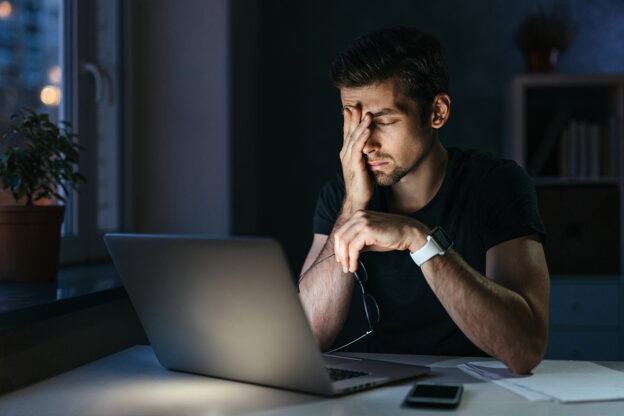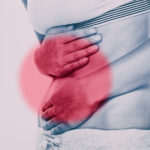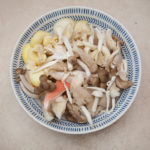By David Blyweiss, M.D., Advanced Natural Wellness
April 18, 2022
A lot of folks don’t realize their bedrooms have got to be dark for a good night’s sleep. Their devices need to be turned off about an hour before bedtime, and there really can’t be any light seeping in. The blinds have to be drawn.
But it’s more than that. There are all of those LED lights from your TV, phone charger, stereo and other devices. You have the little blue lights. You have the little green lights. They drive me crazy! I have to cover them up or I can’t sleep at all.
Those little lights are more than an annoyance. They are bad for your health.
Any light exposure during sleep places the body in a higher state of alert. This increases your heart rate. It increases blood flow against the blood vessels and the force of heart contractions.
So even though you’re asleep, your sympathetic nervous system – which should only be active during the day – is activated.
Instead, you want to activate the parasympathetic nervous system at night. This activation is automatically triggered when melatonin levels increase as darkness occurs. And it allows your body to rest and restore itself.
Open your arteries, improve blood flow for a new health miracle...
Did you know your circulatory system has over 60,000 miles of arteries, veins and other blood vessels, if stretched end to end?
But as you age, your blood vessels undergo changes, which may cause them to stiffen, thicken and get clogged.
GOOD NEWS! Doctors have now identified a “Miracle Molecule” inside your arteries that helps OPEN your arteries and IMPROVE blood flow.
It’s what Dr. Valentin Fuster calls it, "One of the most important discoveries in the history of cardiovascular medicine."To you, that means...
- Healthy blood pressure
- Sharper mind and memory
- Skyrocketing energy and muscular strength
- Increased pleasure and passion in the bedroom
- Improved circulation to every cell and organ in your body
Go here to discover a new natural way to significantly boost the levels of this miracle molecule in YOUR body NOW!
But nighttime light exposure prevents it from happening.
Exposure to light during sleep also affects the ability to regulate blood sugar. It basically results in “morning after” insulin resistance. Over time, this could result in metabolic syndrome and diabetes. And it may explain why artificial light exposure during the night is so closely associated with obesity.
If it’s Not One Thing, It’s Another
Just recently I mentioned how light affects our bodies more than most people realize. Ambient light is no exception.
Women, in particular, hear a lot about how light from streetlights and headlights shining in their windows at night can increase their risk of breast cancer.
But it’s not just the outdoor light that counts.
In 2021 researchers took a look at 17 high quality studies that measured the effects of both outdoor and indoor light exposure on breast cancer risk. They found the risk was similar for both outdoor and indoor light-at-night exposure.
Are You Suffering From...
- Love handles and a pot belly
- Romance that isn't what it used to
- Forgetfulness and inattention
- Low (or no) strength and endurance
- A sex drive that's shifted into neutral...or worse
If so...you may have Mature Male Burnout. Click here to discover more about this unique condition and what you can do about it.
Overall, premenopausal women were at slightly more risk of developing breast cancer. But when they narrowed it down to indoor light exposure only, the cancer risk was a higher among the postmenopausal women.
And while it’s not as well-publicized, men are at risk too. Ambient light during sleep contributes to prostate cancer, something that no man wants to be faced with.
Bring Nighttime Back into Your Life
Exposure to even small amounts of light at night comes with health risks. There’s also the fact that you won’t get as much sleep.
Those seemingly innocuous little lights decrease the amount of deep sleep you get, increase the number of times you awaken and reduce the TOTAL amount of sleep you get. That means you won’t be at your best when you wake up in the morning.
So what can you do to limit your exposure?
Use room-darkening blinds to block light from outdoor streetlamps and car headlights. You should close them an hour or two before bedtime.
Remove portable devices from the bedroom. You don’t need to sleep with your laptop, tablet or phone next to you. Move them to another room and charge them up overnight. (If you just can’t live without them, shove them into your bedstand drawer or cabinet while you sleep.)
Unplug the unpluggable. Some things have to remain stationary. So if you have your TV hooked up to a cable box, Roku or other devices, invest in a power strip. Plug them all into it and, at night when you shut everything down, turn the power strip off. You can do the same thing if you have a desktop computer and router set up in the bedroom due to space constraints.
Check into LED-dimming stickers. Yes! There are stickers designed specifically for dimming or blocking LED lights. There is a brand called LightDims that has a wide selection of shapes, sizes and dimming effects. And unlike tape or other types of stick-ons, they don’t leave a sticky residue. (You could always use black tape, but that would leave a gluey mess when you removed it, right?)
Shut off the house lights before bedtime. Turn off any lights that may be adding to the ambient light in your bedroom. This includes hallway lights, closet lights, exhaust fan lights in the kitchen and all of the other lights in the house.
If you are used to having ambient light at night and find it difficult to accept the total darkness of your room, you can start off by using a small red night light. Red lights don’t interfere with melatonin production the way other light colors do. Then, once you get more comfortable with darkness, you can remove it.
Your body needs darkness just as much as it needs light and there is a time and place for both to benefit you.
Sources:
Mason IC, Grimaldi D, Reid KJ, Warlick CD, Malkani RG, Abbott SM, Zee PC. Light exposure during sleep impairs cardiometabolic function. Proc Natl Acad Sci U S A. 2022 Mar 22;119(12):e2113290119.
Park YM, White AJ, Jackson CL, Weinberg CR, Sandler DP. Association of Exposure to Artificial Light at Night While Sleeping With Risk of Obesity in Women. JAMA Intern Med. 2019;179(8):1061-1071.
Urbano T, Vinceti M, Wise LA, et al. Light at night and risk of breast cancer: a systematic review and dose–response meta-analysis. Int J Health Geogr. 2021. 20, 44.
Garcia-Saenz A, Sánchez de Miguel A, Espinosa A, Valentin A, Aragonés N, et al. Evaluating the Association between Artificial Light-at-Night Exposure and Breast and Prostate Cancer Risk in Spain (MCC-Spain Study). Environ Health Perspect. 2018 Apr 23;126(4):047011.
Cho CH, Yoon HK, Kang SG, Kim L, Lee EI, Lee HJ. Impact of Exposure to Dim Light at Night on Sleep in Female and Comparison with Male Subjects. Psychiatry Investig. 2018;15(5):520-530.
Cho CH, Lee HJ, Yoon HK, Kang SG, Bok KN, Jung KY, Kim L, Lee EI. Exposure to dim artificial light at night increases REM sleep and awakenings in humans. Chronobiol Int. 2016;33(1):117-23.







